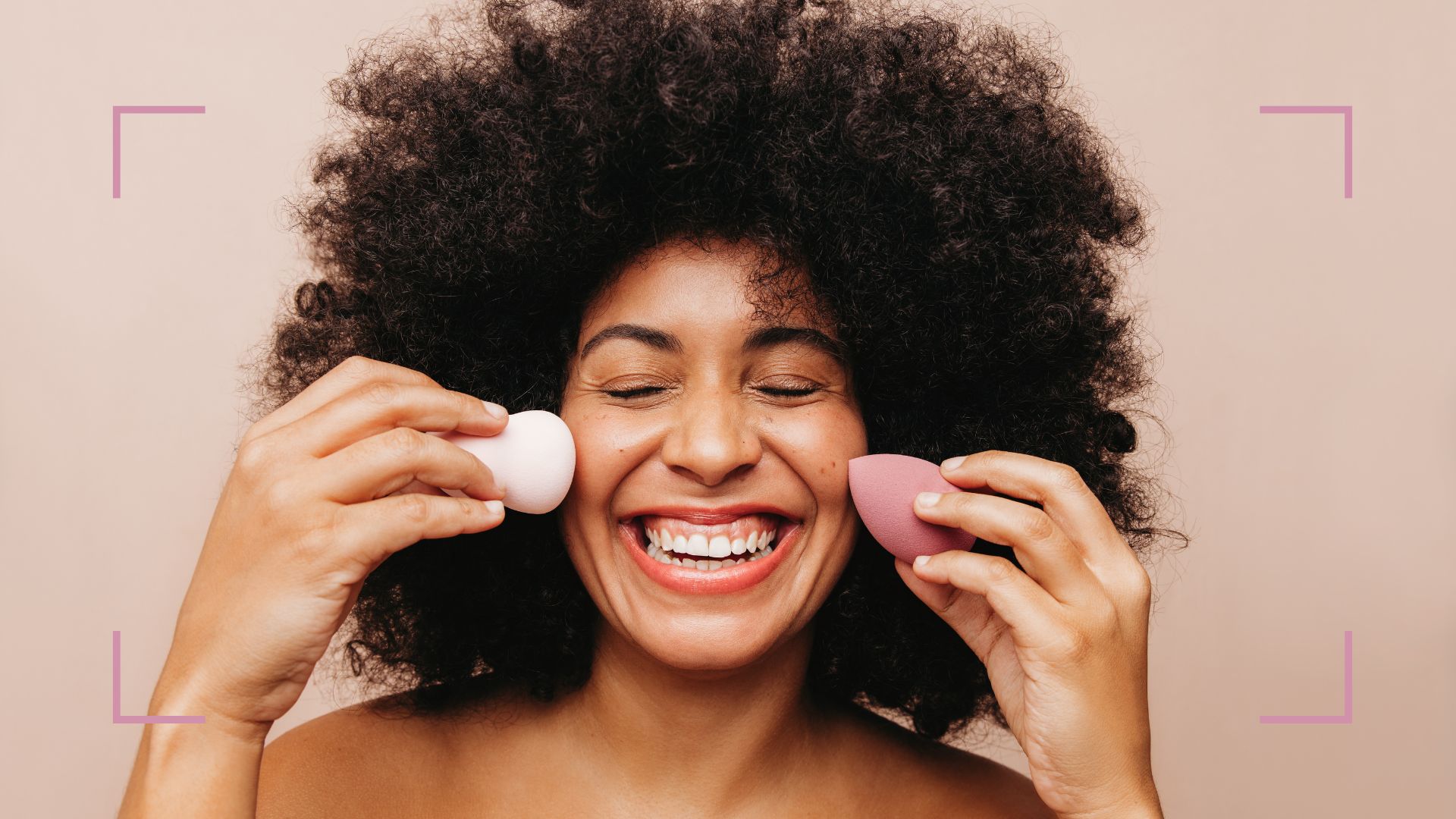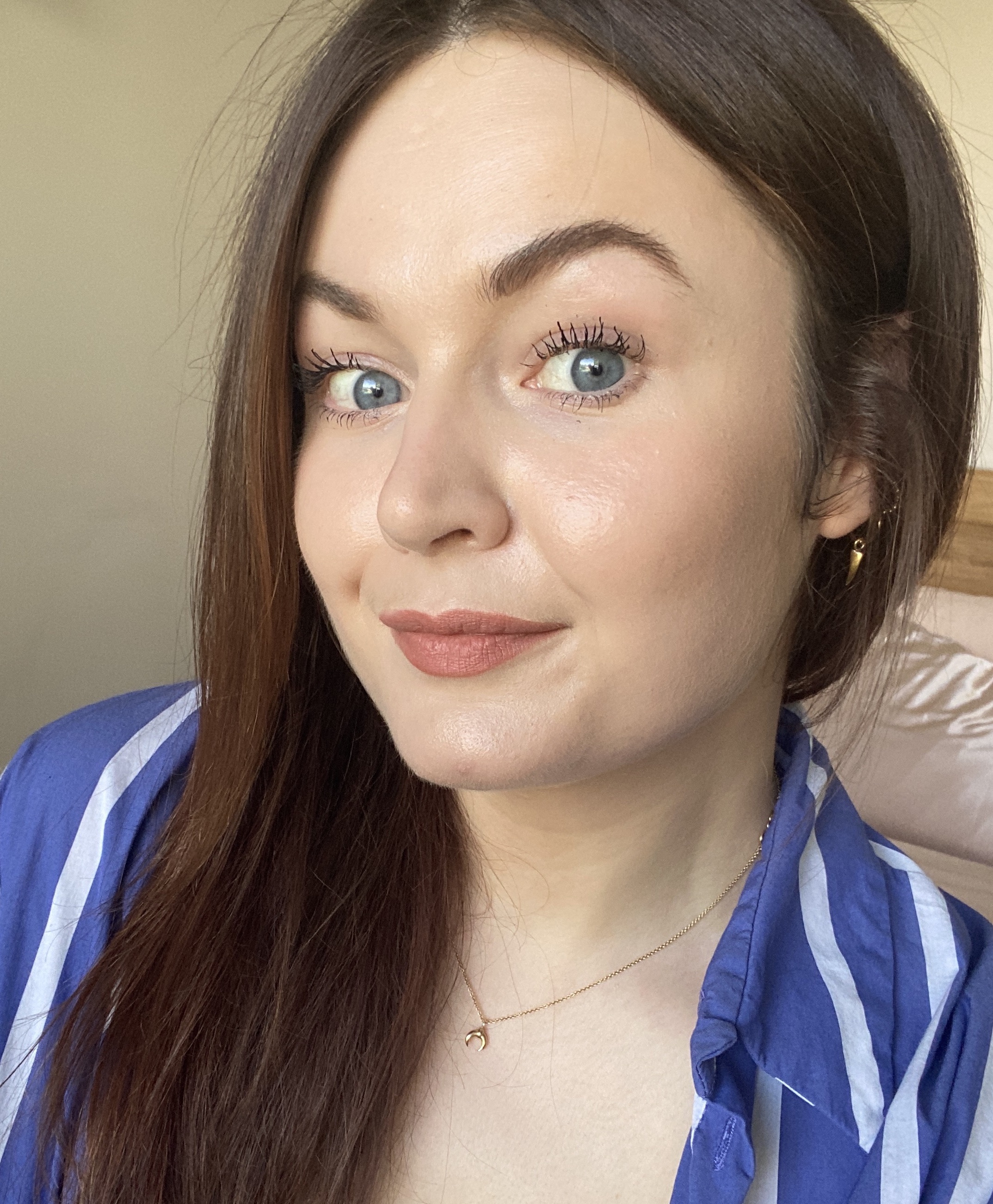Foundation vs tinted moisturizer: key differences and which to use
We clear up the differences between foundation vs tinted moisturizer – with insights from pro makeup artists


Weighing up foundation vs tinted moisturizer? Foundation as we know it has been around for the best part of a century, but today there are so many more makeup base products to choose from that, for beginners, shopping for one can get a little confusing.
And so, on your quest for the best foundation, you’ve likely debated foundation vs tinted moisturizer but aren’t sure which is better. In fact, staring out across the landscape of beauty shelves, you’ll be met with a plethora of categories and beauty conundrums, so perhaps you've also wondered about foundation vs BB cream vs tinted moisturizer and co. They all have their place but differ in terms of things like coverage, longevity, and shade flexibility.
If you can’t work out which is the right formula for you, we've spoken to the industry’s top makeup artists to get some expert insight for this in-depth guide. Below is everything you need to know about the differences between foundation and tinted moisturizer and how they compare, to help you settle on which to use and when.
Foundation vs tinted moisturizer: our expert guide
What are foundation and tinted moisturizer?
Even if you don’t often wear it yourself, you’re probably familiar with foundation; for most people, it’s the go-to makeup base. Available in powder, liquid, and cream form, as well as the best foundation sticks, this base product evens out the complexion for a flawless canvas for the rest of your makeup.
The best tinted moisturizers, on the other hand, are a much lighter affair, offering just a hint of pigment in a moisturizing formula that gives a wash of complexion-matching color. As the name suggests, they are also at their core a moisturizer, so usually contain skin-loving ingredients like antioxidants or hyaluronic acid, for example.
Like some foundations, many also feature the inclusion of an SPF, but it’s important to note that to get the protection on the bottle, you’d need to apply a teaspoon’s worth to your face and neck – which is actually quite a lot of tinted moisturizer and will give more than the hint of color they're designed for. If you're unlikely to do this, be sure to apply one of the best facial sunscreens first.
Foundation vs tinted moisturizer: key differences
“I think the main difference between a tinted moisturizer and a foundation is the amount of coverage and color each one offers,” explains Aimee Connolly, makeup artist and founder of Sculpted by Aimee. “Foundations will usually contain more color pigment, more coverage, and have a wider shade range, whereas a tinted moisturizer is almost like an extension of your skincare, just with an added tint. It will appear much lighter on the skin, giving a fresh and sheer finish that allows texture to shine through."
Sign up for the woman&home newsletter
Sign up to our free daily email for the latest royal and entertainment news, interesting opinion, expert advice on styling and beauty trends, and no-nonsense guides to the health and wellness questions you want answered.
In summary, the key differences are:
- Coverage level: Foundations tend to vary in coverage level, but even the lightest, most buildable options, such as the best serum foundations, will usually provide more than a tinted moisturizer, which is more of a subtle hint of color.
- Pigment: The above is a nice segue into pigment level, as tinted moisturizers are far less pigmented than foundations. This is partly why their shades tend to be more flexible.
- Skincare benefits: Although many modern foundations feature the inclusion of skincare benefits, tinted moisturizer fundamentally has a skincare base.
- Shade range: When browsing foundations, you may have noticed their shade ranges tend to be far more extensive than tinted moisturizers. This is largely because tinted moisturizer is lighter and sheerer, so the shades tend to be more flexible – much like the best BB creams and CC creams – and so there are usually fewer options on offer.
What does tinted moisturizer do?
As we’ve touched on, tinted moisturizers usually come with several skincare benefits to keep your skin feeling great throughout the day, and their coverage is much subtler. Think of them as giving your skin a little pick-me-up rather than applying a flawless full face of makeup, evening out your complexion ever so slightly rather than correcting and concealing completely. They can be applied using a brush or your fingers – our dedicated feature on how to apply tinted moisturizer is a detailed guide to the application process.
When should I use foundation vs tinted moisturizer?
There are no right or wrong answers here, as the important thing is to opt for whichever product you enjoy using the most and that makes you look and feel your best. However, for those makeup wearers who use tinted moisturizer, it’s usually worn for everyday activities or when there are no special plans in the diary. Some people do, of course, choose to wear foundation every day, but it’s more commonly worn for evenings out or occasions when you need lasting coverage.
“I love using a tinted moisturizer for my day-to-day in the office or when I'm on holiday as my skin can breathe and it's super quick and easy to apply. If I head for a run or to the gym after work, I don't need to worry about removing my makeup first," says Connolly, who recommends her own Tint and Glow formula. "But if I have an important meeting or I'm heading out for the evening, I'll usually reach for a foundation, something that is a little longer wearing and with a little more coverage.”
Celebrity makeup artist Joy Adenuga agrees: “For daily use, I much prefer a tinted moisturizer and for special occasions, I opt for a regular foundation as I still believe they have better longevity.”
Is foundation better than tinted moisturizer?
“To be honest, this comes down to personal preference,” says Adenuga. “The latest tinted moisturizers are heavy in skin-loving ingredients with clever technology, offering more coverage yet feeling really light on the skin. On the other hand, the past year has seen more people invest in skincare and [are therefore] happy to go with their regular foundation, offering more coverage.”
It's worth noting that each has benefits that the other does not. “Tinted moisturizers are less likely to build up and clog your pores,” Connolly explains. “That being said, if using a foundation, you shouldn't have to worry about clogged pores either. Choose a non-comedogenic formula with healthy ingredients that allows you to build up coverage. A foundation may perform 'better' at color correction and concealing blemishes or pigmentation, but you can also achieve this with a tinted moisturizer by pairing it with heavier coverage concealer,” she adds.
Foundation vs tinted moisturizer: the W&H verdict
So, is there an overall winner in this cosmetics contest? Well, foundation vs tinted moisturizer is a bit like comparing apples and oranges: obviously, both are makeup products, but when it comes down to specifics they are quite different. It’s actually worth having both in your makeup collection for different occasions.
If you are set on choosing only one of the two, though, what it really boils down to is the level of coverage. As we touched on earlier, tinted moisturizers have much lighter coverage and are more breathable, while foundations offer amped-up coverage. So if you’re hoping to really even out your skin tone and conceal things like blemishes, foundation is probably a better choice for you.
Tinted moisturizers, however, are great when you want a little 'added something' but don’t want or need the heavier coverage that foundations will give. This makes them a great choice for those who are new to wearing base makeup or who don’t wear it often. In a nutshell, both have their place, but which one you deem to be better will come down to what you like in a makeup base – if you’re not sure, head to your nearest makeup counters, grab some samples, and get testing!
Lucy is a UK-based beauty journalist who has written for titles including Marie Claire, Glamour and OK!, as well as contributing to woman&home. Her work covers everything from expert skin and haircare advice to beauty trends and reviews of the latest products. During her career she regularly speaks to the industry's leading hairdressers, dermatologists and make-up artists, has covered backstage at London Fashion Week and interviewed many a celeb about their beauty routine.